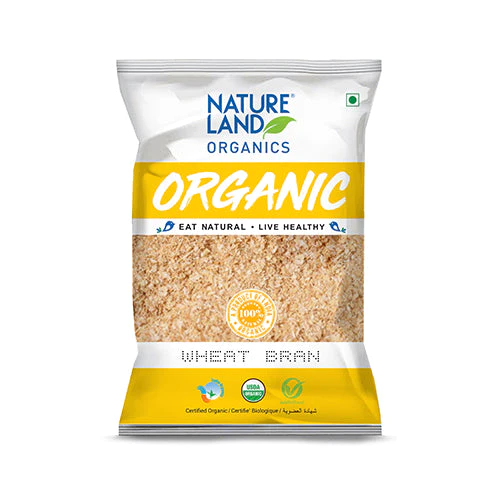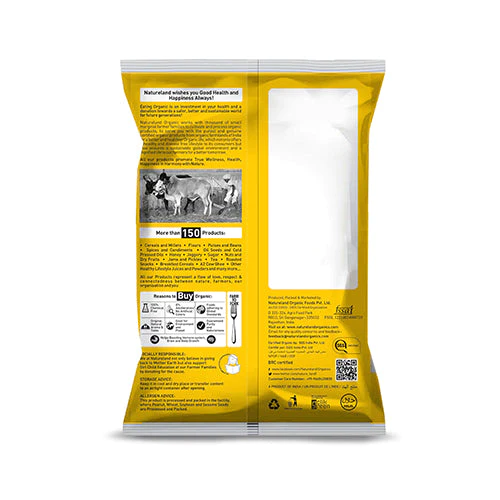ORGANIC WHEAT BRAN 400 GM
Original price was: ₹40.0.₹32.0Current price is: ₹32.0.
- Description
- Additional information
- Reviews (0)
- Q & A
- Sustainability Remark
- More Offers
- Store Policies
- Inquiries
Wheat Bran is used to make bread muffins and other baked goods. In the Indian society, it is a valuable essential. Natureland Organics Wheat Bran is 100% Pure and Organic with a chock-full of nutrients. It is augmented with Vitamin B6, Magnesium, Phosphorus, and Potassium.It is a nutrient dense and low calorie flour.
| Weight | 400 kg |
|---|---|
| brands | Nature Land Organics |
You must be logged in to post a review.
Q & A
Organic cereal products can be more sustainable than conventional cereal products in several ways:
Reduced use of chemicals: Organic farming practices prohibit the use of synthetic pesticides and fertilizers, which can have negative impacts on soil and water quality, as well as on biodiversity. By avoiding the use of these chemicals, organic cereal farmers can help maintain a healthy ecosystem and reduce their environmental impact.
Soil conservation: Organic farming practices often involve the use of techniques such as crop rotation and cover cropping, which help to maintain soil health and prevent erosion. This can improve the long-term sustainability of cereal production by reducing the risk of soil degradation and loss.
Reduced greenhouse gas emissions: Organic farming practices often involve the use of natural fertilizers, which can reduce the carbon footprint of cereal production. Additionally, organic farming practices can help sequester carbon in the soil, further reducing greenhouse gas emissions.
Support for local communities: Organic cereal production can support local economies by creating jobs and fostering sustainable farming practices. Additionally, organic farming practices can help to preserve traditional farming knowledge and techniques.
However, organic cereal production also has some challenges to sustainability, including:
Lower yields: Organic farming practices can lead to lower yields compared to conventional farming practices, which can limit the amount of cereal that can be produced on a given amount of land.
Higher prices: Organic cereal products are often more expensive than conventional products, which can limit their accessibility to some consumers.
Transport: Organic cereal products are often transported long distances to reach consumers, which can increase their carbon footprint and impact their overall sustainability.
In conclusion, organic cereal products can be more sustainable than conventional products in several ways, but there are also some challenges to sustainability that need to be addressed. Consumers can support sustainable cereal production by choosing organic products, supporting local farmers, and reducing food waste.
General Inquiries
There are no inquiries yet.


















Reviews
There are no reviews yet.